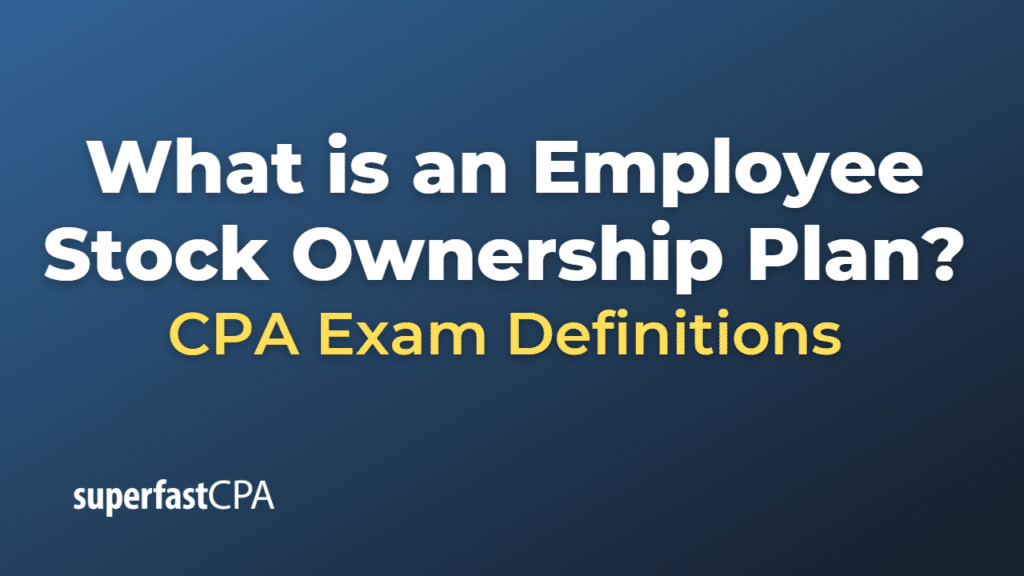Employee Stock Ownership Plan
An Employee Stock Ownership Plan (ESOP) is a type of employee benefit plan that gives workers ownership interest in the company. In an ESOP, a company sets up a trust fund, into which it contributes new shares of its own stock or cash to buy existing shares.
Shares in the trust are allocated to individual employee accounts. Generally, all full-time employees over 21 years of age participate in the plan. Allocations are made either on the basis of relative pay or some more equal formula.
As employees accumulate seniority in the company, they acquire an increasing right to the shares in their account, a process known as vesting. When employees leave the company, they receive their stock, which the company must buy back from them at its fair market value unless there is a public market for the shares.
ESOPs are used by companies for a variety of purposes. They can provide a market for the shares of departing owners of successful closely held companies, motivate and reward employees, or take advantage of incentives to borrow money for acquiring new assets in pretax dollars. In most cases, ESOPs are a contribution to the employee and cost the employees nothing except the obligation to pay taxes on the distributions.
While ESOPs can offer numerous benefits, they are also complex structures and do entail some degree of risk for employees since their financial well-being is tied to the company’s performance.
Example of an Employee Stock Ownership Plan
Imagine a hypothetical company called TechHub Inc. TechHub’s leadership wants to incentivize its employees and align their interests more closely with the company’s success, so they decide to establish an Employee Stock Ownership Plan (ESOP).
TechHub sets up a trust fund and contributes $1 million worth of its own shares into the fund. These shares are then allocated among the company’s 100 employees, giving each of them a $10,000 ownership interest in the company.
Over time, as each employee continues to work at TechHub, they earn the right to more of these shares through a process called vesting. For example, TechHub might have a five-year vesting schedule where employees earn the right to 20% of their shares for each year they stay with the company.
If an employee were to leave TechHub after three years, they would have the right to 60% of their allocated shares, or $6,000 worth of TechHub stock in this example. TechHub would be required to buy these shares back from the departing employee at their fair market value.
In this way, the ESOP provides a significant financial benefit to the employees at no cost to them, while also motivating them to contribute to the company’s success. The more successful the company is, the higher its share price would likely be, and the more the employees’ shares would be worth.












